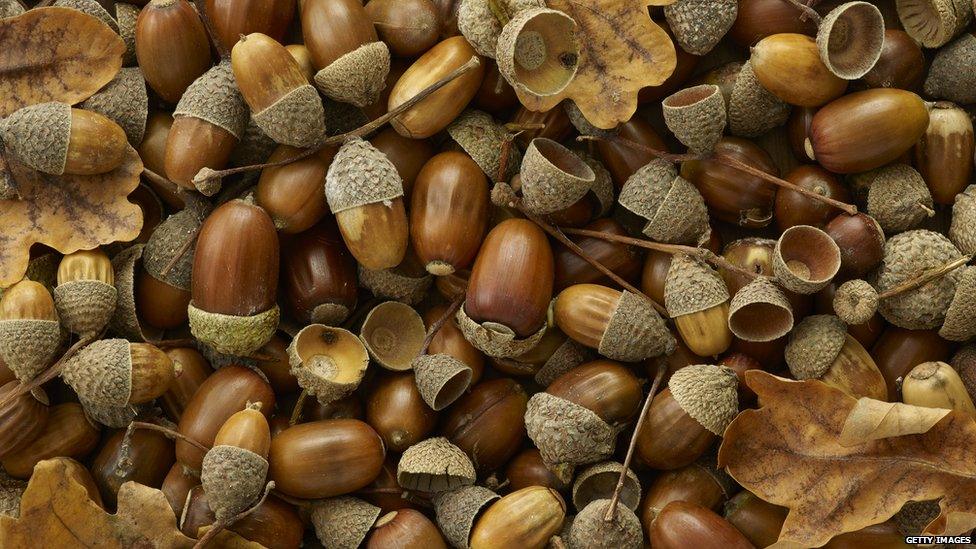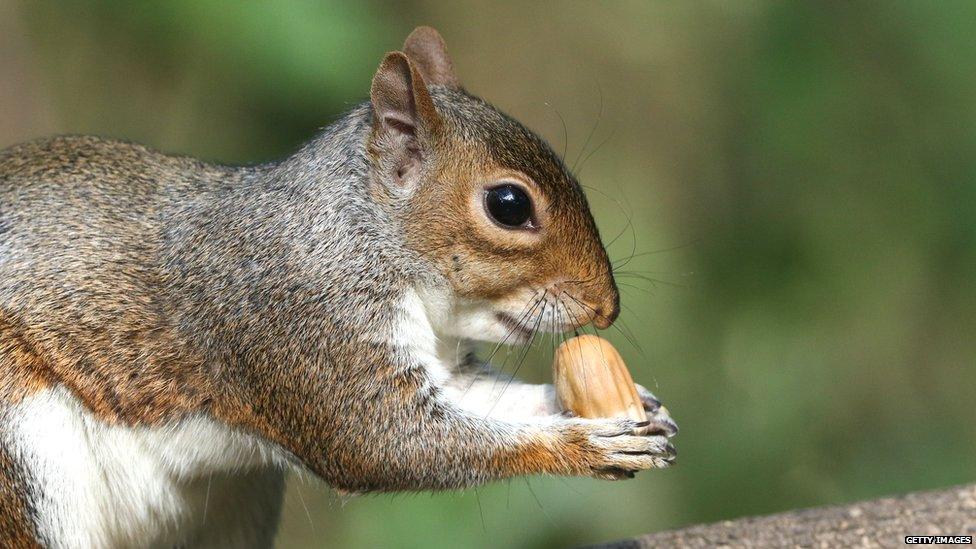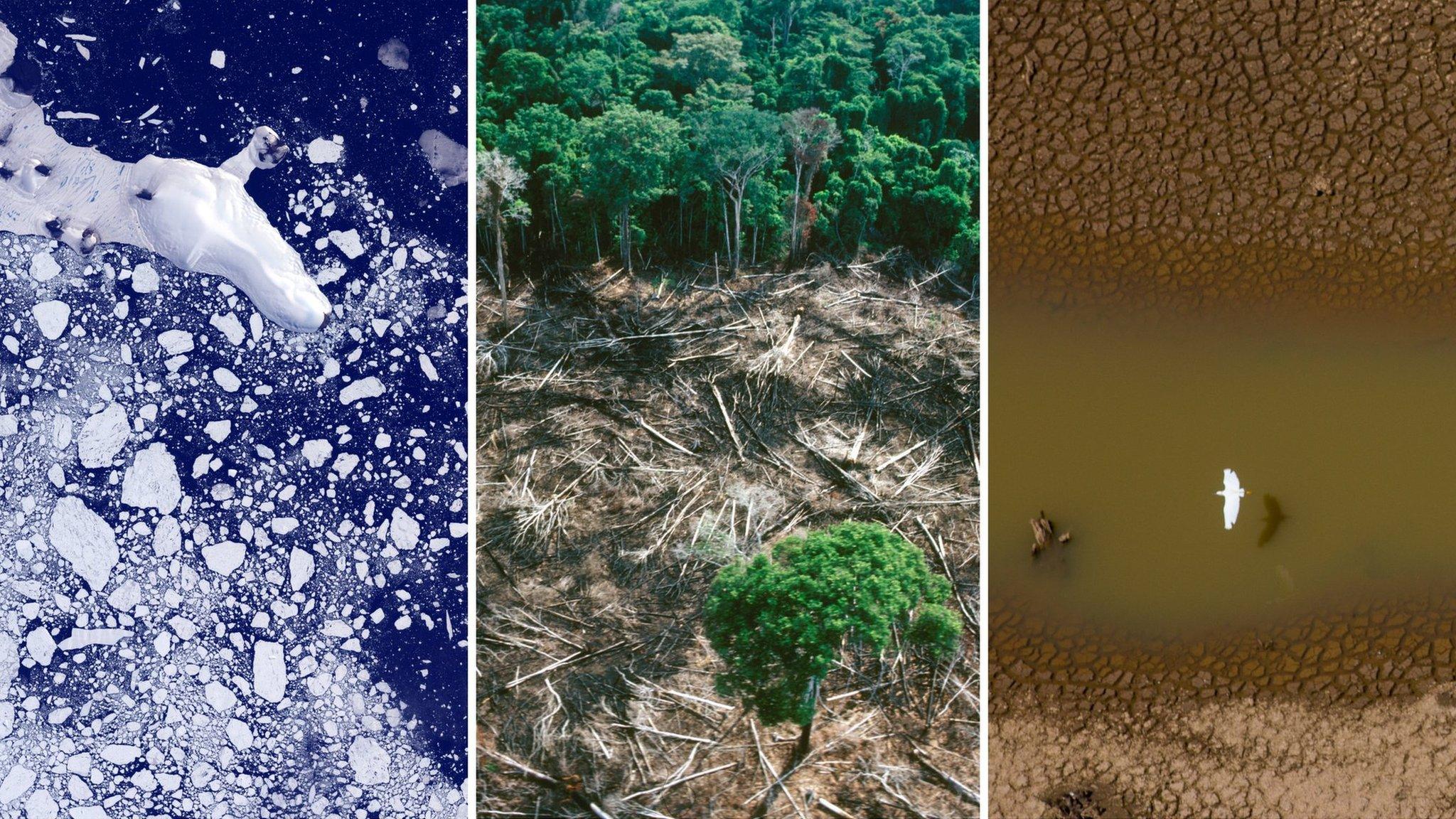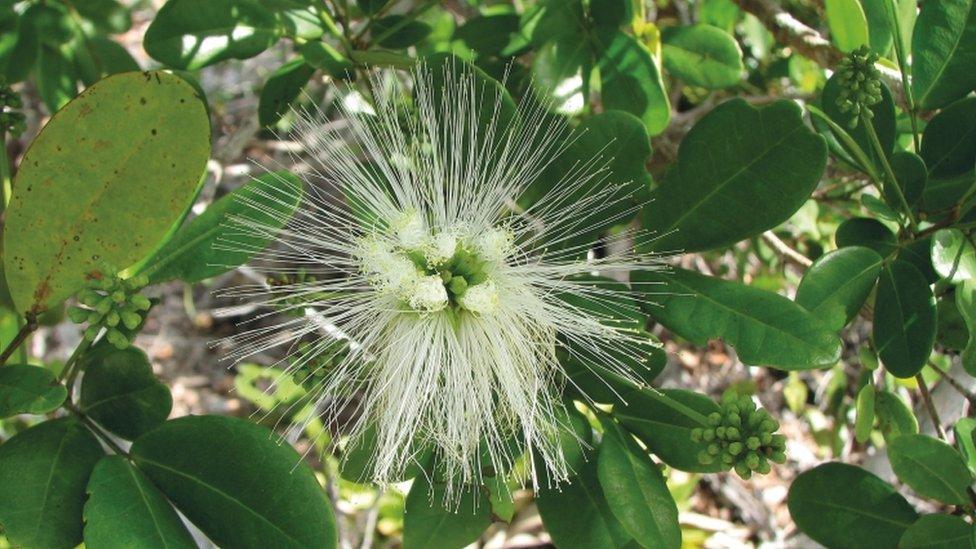Climate change: Where are all the acorns this year?
- Published

How many of these have you seen this year?
Autumn is the time for falling leaves, conkers, and acorns.
But this year, there are fewer acorns than normal.
This is partly because oak trees operate in a 'boom and bust cycle' - in 2020 oak trees made so many acorns that this year they don't have as much energy left, so won't be able to produce as many.
However, this year there are fewer than normally expected in a 'bust' year.
This is partially due to the weather, as the Spring we've just had was both frosty and wet at times, which made it harder for oak trees to make seeds.
The Woodland Trust cares for woods and trees. Dr Kate Lewthwaite, from the Trust, said that last year they recorded loads of acorns: "You could be crunching on carpets of acorns as you walked around the woods. This year there's barely an acorn to be seen."
Two-fifths of the world's plants are at risk of disappearing
Acorns are oak tree seeds, and so if there are lots of years with fewer seeds, it could also mean fewer oak trees in years to come, which will have an impact on local wildlife and our climate. r In the shot term, this could be bad news for wildlife such as squirrels and jaybirds that rely on acorns for food, although they do have other sources too.

Squirrels will have less acorns to eat for dinner, but there are other things they can munch on this year
In the long term, Dr Kate says that because of the bumper crop last year, there should be lots of saplings to make up for this year's seed drought.
However, if weather patterns like this year's continue, and other factors such as tree disease put more pressure on oak trees, we could see them decline in future if they can't adapt. Lots of animals and insects have evolved alongside oak trees and are dependent on them for food and shelter. In fact, Dr Kate said: "Native oak support over 2,300 different species, and 326 of them are entirely dependent on oak trees for survival." Dr Kate says that we shouldn't be too worried, but this is certainly something to keep a close eye on.
Have you noticed fewer acorns near where you live this year? Let us know in the comments!
- Published20 January 2020

- Published30 September 2020

- Published23 September 2019

